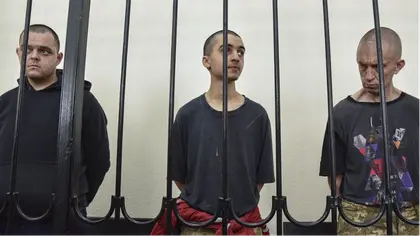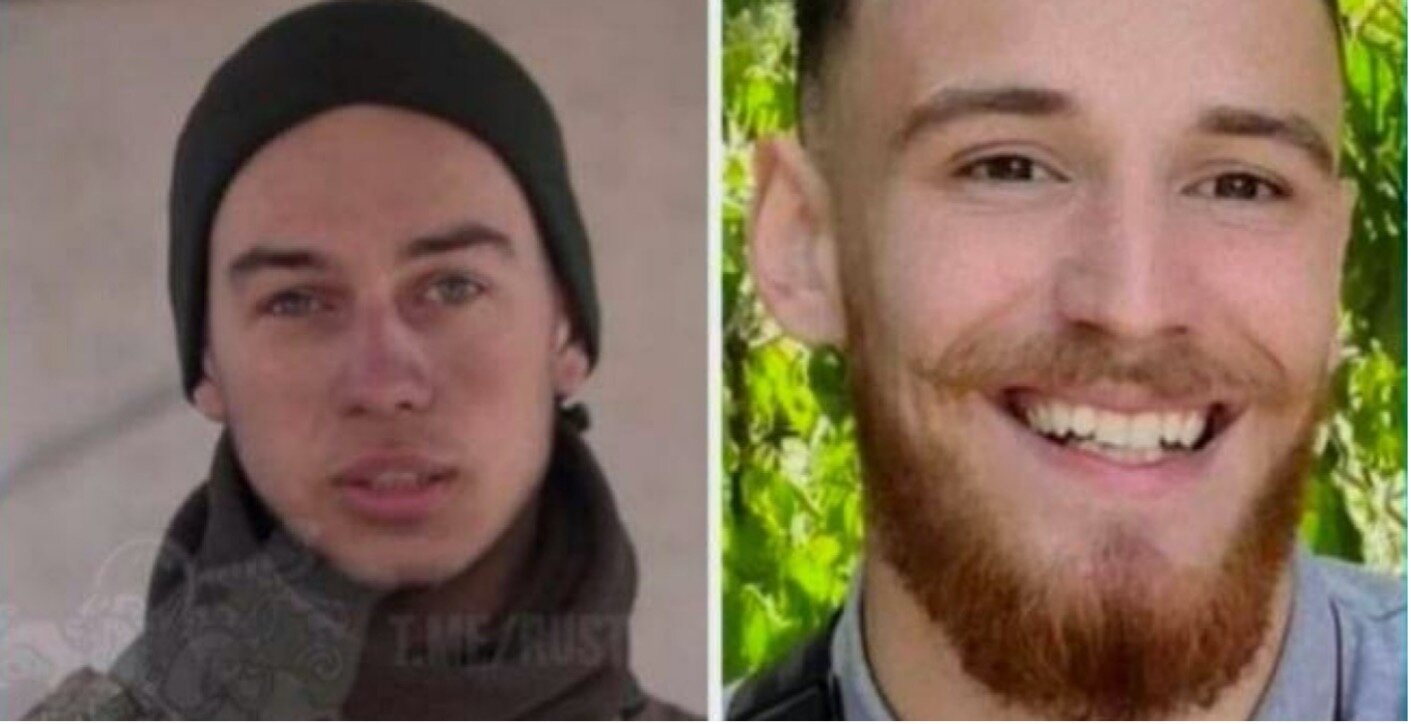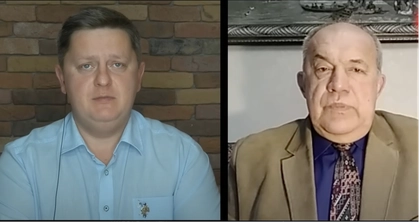On July 9, Russian correspondent Dmitry Steshin reported that two Azov Regiment fighters had been sentenced to death in the self-proclaimed Donetsk People’s Republic (DPR).
Many Azov fighters fell into Russian captivity in mid-May upon leaving the Azovstal steel plant in Mariupol, where they had held the defence for many weeks. In total, the Russians captured two and a half thousand soldiers from Azovstal.
JOIN US ON TELEGRAM
Follow our coverage of the war on the @Kyivpost_official.
On July 8, the DPR abolished a temporary moratorium on the death penalty, supposedly as a deterrent against grave crimes that it sees as a threat to the quasi-state.
On June 9, the Supreme Court of the self-proclaimed DPR sentenced three foreigners to death who fought for Ukraine. They include two British citizens – 48-year-old Sean Pinner and his friend, 28-year-old Aiden Eslin; along with 21-year-old Moroccan citizen Brahim Saadoun. The death penalty is to be carried out by firing squad.
Since 2014, the DPR has sentenced three people to death on charges of murder, rape and kidnapping. In May 2022, Russian newspaper Moskovsky Komsomolets wrote that not a single sentence has been carried out since the laws of the DPR do not spell out how to do it.
Russian politician Ilya Ponomarev commented that the prisoners could potentially be executed; furthermore, that Russia could possibly introduce the death penalty.
“In connection with the withdrawal of the Russian Federation from the Council of Europe, Russia may reinstate the death penalty, especially if the partisan movement grows. The Putin regime will likely begin to apply the death penalty, not to serial killers [and the like], but to its political opponents.” Ponomarev stated on his Facebook page.

Exiles From Occupied Bakhmut Find Hope in Christmas Celebrations
Death penalty in Belarus
On the European mainland, Belarus is the only country that still uses the death penalty as a form of punishment in its legislation.
The country’s president, Alexander Lukashenko, uses the death penalty in the fight against the partisan movement. On May 4, Lukashenko approved a bill allowing the death penalty to be used for cases of “attempted terrorism and assassination of political figures” under certain aggravating circumstances.
The convicted individual can request life imprisonment as an alternative, but only one person is known to have been pardoned for all the years of Lukashenko’s rule.
The death penalty in Belarus is traditionally shrouded in mystery. The executed body is not given to the family for burial, nor its final location reported. In 2003, this practice was recognized by the UN Human Rights Committee as inhuman with respect to the relatives of those executed. The Committee demanded that the country eliminate such violations, but their demand fell on deaf ears.
In the last decade, the Belarussian state executed between two and nine people every year. According to the Ministry of Justice of Belarus, between 1990 and 2011 the state carried out a total of 326 executions.
You can also highlight the text and press Ctrl + Enter







